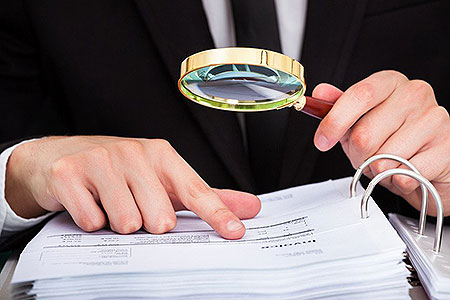
By Inna Inna Pchelyanskaya | Photo: sarinform.com
To buy an apartment or a house is a cherished dream of many Kazakhstanis, but how to do it safely? Various legal subtleties, the gaps in the laws, the incompetence of some experts, cunning swindlers, and other circumstances can sometimes result in wasted time and nerves, and even the loss of money.
Today, Bakhyt Kasymbekov, Lawyer on Housing Relations at the Krisha real estate website, and Andrey Artyushenko, Managing Partner at Law Firm Artyushenko and Partners, are sharing the main rules for buying safely a real estate in Kazakhstan.
So, you have found a house/apartment of your dream. What to do next? The experts recommend conducting a transaction, following the three basic steps below:
- Checking the clean title to the real estate
First, ask the seller to provide you a No Encumbrance Certificate. You can learn from this document when (day, month, year) and on what basis (the type of title deed) the seller became the owner of the house/apartment. This document also specifies the number of owners which own the house/apartment and whether any encumbrances have been applied to the house/apartment or not (whether it has been arrested / pledged, or other restrictions on its use have been laid).
Further, based on the data in the certificate, you should ask the seller to produce the title deed (contract of sale of the entire house/apartment or its part, the deed of gift, the contract of exchange of property, certificate of inheritance, or other).
Do not forget to check the identification document (registration certificate for the house/ apartment, the state certificate of the land plot). Verify the figures, information about the house/apartment and the owner.
A very common problem is mistakes in the papers. For example, in the title deed there can be specified one figures as the area, in the certificate of encumbrances the other, in the technical certificate for the house/apartment the third ones. All these are the problems of the seller. He/she must remove them prior to the conclusion of the transaction.
It often happens so that the house/apartment has an illegal redevelopment. It threatens the payment of a fine. If the load-bearing structures were demolished, such redevelopment of the house/apartment is likely to be not accepted at all. Therefore, we advise you to call a technician from the real estate center, who will accurately tell you whether any such violations were made or not.
Subtleties
The lawyers do not recommend concluding a deal, if there are any discrepancies in the documents!
Recall that you can learn from the No Encumbrance Certificate how many owners do own the house/apartment. This is important in case of the privatized apartments, where, as a rule, there are a few owners for one apartment. This means that all of them have to sign the contract of sale, if they are selling the apartment. Experts say that there are only 1% of such apartments left in the market but it is still the case.
It is important also to learn whether the seller has a spouse or not. His/her consent is also required in the transaction. If the owner of the property is a child who is under 14, then it will need to get an approval from the guardianship authorities.
Do not forget to verify the passport data of the owner. It happens so that fraudsters use someone else's identity cards.
In what cases the seller can cheat on the buyer:
— Sale by proxy (based on the power of attorney);
— If at some time in the past the seller somehow received the property as a gift from the minor, which is prohibited by law;
— If in the past the unfair distribution of the inheritance took place;
— If there are doubts about the seller’s capacity to contract (there are signs of alcohol or drug abuse), or his behavior seems inadequate;
— The seller is in the other city / region at the moment of the transaction completion;
— Sale via the Internet, Skype, phone;
— Sale by producing the duplicates of the title deed;
— Urgent sale of the property;
— Selling at a very low price.
Lawyers advise to be careful with the property for sale, whose the owners have changed 3-4 times, or when any litigation took place with regard to such property in the past. Attention should be also paid to the property which was inherited by the seller or given to the seller as a gift. Offended heirs may claim the violation of their rights.
A little trick: on the special website almaty.sud.kz in the section "Inquiry for court cases" («Справочник по судебным делам»), you can fill in the form a search query and see, if the owner has been involved in any litigation over the last few years.
- Executing the down payment (or the earnest) as per the law
If everything is okay with the documents, then it is time to make a down payment. You should execute it in a correct way; otherwise it can lead to loss of money or even the property!
The down payment should be executed in writing in the form of an agreement or contract, in two original copies, and be certified by a notary. So, no receipts written by hand!
The agreement should specify the size of the down payment (only in tenge, otherwise the deal can be recognized invalid), the full price of the property and the exact date of the calculation.
Be careful, if the buyer offers to pay you 50% or more of the amount of the transaction as the down payment and asks to let him move to the apartment/house immediately. It is very much likely that the seller may lose the property without getting the rest of the amount.
It sometimes happens so that even after the transfer of the down payment the parties waive their obligations. If the buyer has changed his/her mind, the down payment remains with the seller. If you (as a seller) have changed your mind, you should pay back the double size of the down payment to the buyer, and even more - he/she has the right to claim damages.
A tip from lawyers: the size of the down payment should not exceed 5% to 10 % of the amount of the transaction.
- Conclude the contract of sale properly
In the conclusion of the contract of sale, the notary shall make sure visually that the seller has the capacity to contract. Also, the notary shall ask him/her to produce the necessary documents, including the consent of his/her spouse or the other owners of the property.
The most important thing is to deal directly with the owner, not the trustee, since the power of attorney can be revoked, annulled, invalidated, and then the legitimacy of the transaction will be in question.
Pay attention to the statement of acceptance/transfer of the property, which is an annex to the main contract. For the buyer, this document ensures the integrity of the property as of the date of signing the contract. The statement of acceptance/transfer of the property indicates availability or absence of claims with regard to the interior decoration of the property: the condition of sanitary equipment, the availability of household appliances and built-in furniture. Also, in this document the seller acknowledges the receipt of money from the buyer. Lawyers advise to sign this statement immediately after inspection of the property and passing the keys directly on site or in the notary’s office.
With regard to the payment, if it is cash payment, it is necessary to specify the amount and the fact of transfer of it, explaining that the seller has received it on-site. The notary, in its turn, shall make a notarized letter that the cash payment has been made in his/her presence. In case of payment by bank transfer, the relevant banking operation shall be confirmed with the relevant bank document. In case of payment by installments, it is necessary to specify in the contract of sale the particular terms, dates, and amounts.
Lawyers insist that in the contract of sale it is necessary to specify the real value of the property, because of the owner decides to annul the transaction the buyer will be paid back the amount which is specified in the contract only.
At the final stage, the notary sends the contract for its registration to the state bodies through www.egov.kz and gives a statement charging the payment of a relevant state duty. After paying it and receiving notification of the registration, the only thing which is left is to confirm the accrued right of property at the notary.
Krisha wishes successful transactions to its readers!
Date of publication on site www.krysha.kz is September 30, 2016.
In Artyushenko & Partners online Store you can buy our fixed fee legal services:







